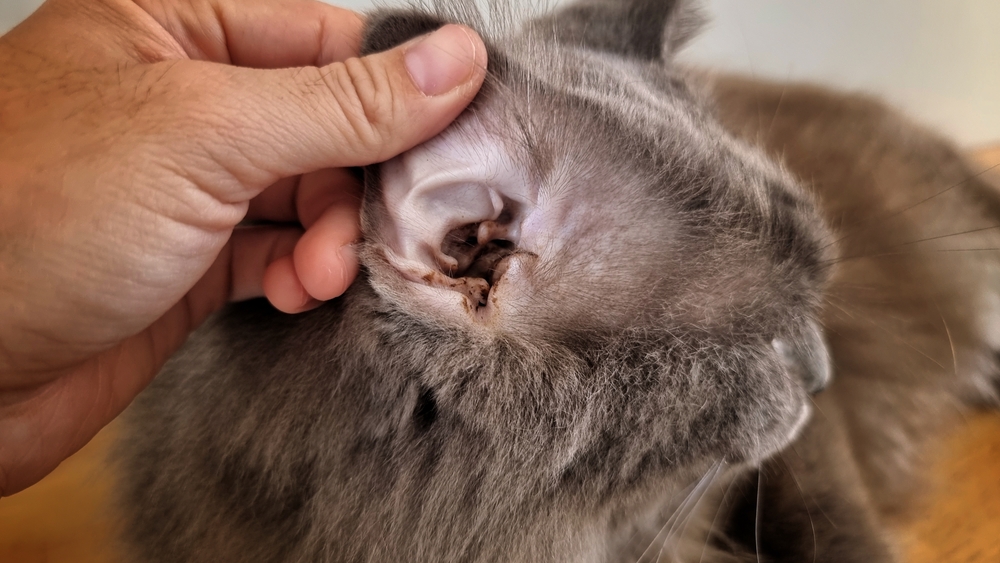Caring for a sick or injured pet can be stressful. You can easily feel overwhelmed trying to figure out whether your pet’s situation requires immediate emergency care or if their health condition can wait for an urgent care or standard veterinary appointment. Our Countryside Veterinary Hospital team explains how to make this decision so your pet gets the treatment they need.
Understanding veterinary emergencies
True veterinary emergencies are situations that are immediately life-threatening or can lead to permanent damage. If your pet is experiencing an emergency, immediately contact our veterinary team or your nearest emergency animal hospital. Consider these common pet emergencies:
- Bleeding wound — A wound that is bleeding heavily or spurting blood requires immediate attention to prevent significant blood loss and shock.
- Bloat — Gastric dilatation volvulus (GDV), commonly known as bloat, is a serious condition in which the stomach fills with gas and twists. This obstructs blood flow and can cause shock and organ damage. Signs include abdominal pain, retching, and abdominal distention.
- Breathing difficulties — If your pet is struggling to breathe, has pale or bluish gums, or is open-mouth breathing, they could have a respiratory obstruction or serious heart and lung problems.
- Broken bones — While some fractures are stable, an open fracture, in which the bone is visible, is an emergency. In addition, if you can see that some bones are severely misaligned, your pet needs immediate treatment.
- Collapse or unconsciousness — This can indicate severe shock, internal bleeding, head trauma, or another critical condition.
- Inability to urinate or defecate — This can indicate a blockage, poisoning, or severe internal injury.
- Vomiting or diarrhea in senior pets, puppies, or kittens — Severe dehydration and electrolyte imbalances can be life-threatening, especially in young or senior pets. Vomiting and diarrhea should be addressed as soon as possible in these pets.
- Seizure — A seizure lasting more than a few minutes or clusters of seizures can cause irreversible brain damage.
- Hit by a car — Even if your pet seems okay, internal injuries are common and need emergency assessment.
- Suspected poisoning — Poisoning’s effects can progress rapidly, so get your pet help right away if you know or suspect they were exposed to a toxin.
What to do if your pet has an emergency
Understanding how to handle an emergency can help save your pet’s life. If your pet is having a veterinary emergency, follow these tips:
- Stay calm and assess the situation
- Call our team or your nearest emergency animal hospital immediately
- Follow any instructions the veterinary team provides
- Safely transport your pet to our hospital or an emergency clinic
Urgent veterinary care

Urgent care is appropriate for situations that need prompt treatment, but don’t pose an immediate risk to your pet’s life. If you think your pet needs urgent care, call our team. We can help you determine if an urgent care appointment is needed or if your pet’s issue can wait until a regularly scheduled wellness visit. Urgent care is appropriate in the following instances:
- Ear infection — An ear infection can be painful and uncomfortable. If left untreated, the infection can worsen and lead to serious complications. Signs include scratching, head shaking, redness, discharge, and odor.
- Eye injury or infection — Eye problems can range from minor irritation to vision loss. Signs include redness, squinting, discharge, cloudiness, or visible injury. Prompt treatment prevents further damage or vision loss.
- Laceration that needs stitches — While minor cuts may heal on their own, deep lacerations or those in sensitive areas may need stitches for proper healing and to prevent infection.
- Limping or lameness — Limping can have many causes, including sprains, strains, fractures, or underlying conditions such as arthritis. An urgent care visit helps rule out serious issues and provides appropriate treatment and pain relief.
- Minor burn — A small, superficial burn may be treatable at an urgent care facility. However, a severe burn requires emergency care.
- Persistent vomiting or diarrhea — Vomiting or diarrhea that lasts for more than a day or is accompanied by other symptoms, such as lethargy, blood, or dehydration, warrants urgent attention.
- Broken bones that appear stable — If you suspect a fracture but your pet’s leg seems stable, and they are not in severe pain, an urgent care visit can provide X-rays, diagnosis, and a treatment plan.
- Skin infection or hot spot — A skin problem can be itchy and uncomfortable, and the condition can worsen quickly if left untreated. Seek urgent attention if your pet’s skin is red or swollen, or emitting a discharge. In addition, if your pet is excessively licking or chewing an area, you should make an appointment with our team.
- Urinary tract infection (UTI) — A UTI can cause pain and discomfort. Signs may include frequent urination, straining to urinate, blood in the urine, or inappropriate urination outside the litter box. During an urgent care visit, our team can diagnose and prescribe UTI treatment.
Feeling unsure about the severity of your pet’s condition is normal. However, if you think your pet is experiencing an emergency or needs urgent care, call our Countryside Veterinary Hospital team or go to your nearest emergency or urgent care veterinary facility.








Leave A Comment